The discussion comes up on every boat setting sail for the ocean. How are we going to deal with waste? Is it better to throw glass and tin in the ocean or dump it on a little island? What is actually recyclable? How to dispose waste on the other side? Are there recycling facilities in the Caribbean?
I sailed across the Atlantic Ocean 4 times now. I learned a lot on how and how not to do things. I especially saw and learned about the importance and decline of the ocean. Here’s what I learned in the waste department. Surely the intentions of the sailors and yachtsmen are to take the best care of the environment. We all love the ocean. And we like to keep it healthy so we can keep exploring this beauty forever. We also love visiting the islands and waste management facilities may be non-existent.
So how to deal with waste when sailing across the ocean?
Part 1: minimize the provisioning footprint
ON SHORE
We have to be mindful to what we bring on shore on the islands. The Caribbean islands do not have big enough landfalls. Waste is often dumped near the road or burned. Waste in landfalls is often burned as well. So is it better to just throw things like cans, and glass in the ocean? How can we as sailors best tackle this waste management issue on boats?
Here are some ideas to minimize your footprint as a sailor while still on shore:
- Number 1. Do you very best buying without as little packaging as possible. Be mindful on what you bring on board in the first place. It can really add up. As a crewmember, before you even hop on board minimize, minimize, minimize.
- Opt for landing at a destination with recycling facilities in place. It’s worth making your first landing on one of these islands for safe disposing garbage.
- In Spain, Cape Verde, and the Caribbean a plastic bag is still practically mandatory at the supermarket. Always bring your own bags.
- Choose consciously what you buy:
- Buy in bulk to have less packaging in the first place. You can store smaller amounts in reusable containers.
- Paper towels. This is often used lots on board. In many situations, a good old reusable cloth can do the job. If you do use paper, get one that is biodegradable and does not have ink on it (ink is a kind of plastic!). White paper towel is bleached and should not go overboard. Recycled toilet paper and kitchen roll sounds great but is often treated with a lot of chemicals.
- Cleaning Products. Use biodegradable washing liquid for your own and the health of the oceans. It all drains straight to the ocean. You find this in organic stores (which you can find on Happy Cow). Baking Soda and Vinegar + water remains a good cleaning product, for the boat interior as well as your hair.
- Use natural biodegradable soaps and shampoos.
- Go to the market for your provisioning (not supermarket). They come and bring it in carton boxes to the boat. It’s the cheapest way, you support the local entrepreneur and not plastic bags. Avoid buying as much as you can from the supermarket. It’s wrapped in so many wrappers and at checkout, they put everything in bags again, even if you friendly ask not to do that. Especially when they deliver goods. Many boats leave from Spain where they still very accustomed to wrap things in multiple packaging. Find a list of local organic farms around the Atlantic ocean cycle on the Ocean Nomads member hub.

- Don’t buy items that contain lots of wrappers: candy, biscuits and tea (in Spain and Cabo Verde many brands even wrap every individual tea bags). Make your own. If you happen to do buy wrapped stuff, get rid off as much packaging as you can if your departure destination has facilities in place.
- Go to the market with your own reusable bags. If you have foods delivered, see if the marketmen can take back the cardboard and boxes. You don’t want to take those anyway since they are a source of unwanted bacteria, cockroaches.

- Choose products with recycled packaging or packaging that you can reuse yourself.
- Use reusable containers to store goods.
- Reuse items as much as you can– bags, containers, boxes, etc.
- Get cloth napkins instead of paper.
- Get wooden pegs, instead of plastic ones.
- If you don’t have a water filter on board and bottled water is needed, buy the 20Liter bottles + a pump. Water bottles are one of the biggest ocean polluters and not desired in the Caribbean, or anywhere. Read 10 water filter solutions you can use as crew.
- Please don’t buy balloons for the ocean birthday or halfway party. The wind and sun will have them snap and it’ll get mixed into the plastic soup.

We live in a world where convenience and profit still dominate the scene. Walk the extra block. What’s more important? Convenience or continuing a healthy ocean for future generations?
With conscious provisioning, you can reduce your negative impact big time.
What about when you’re out there? Read part 2: What to do with the waste that you are creating? What can go overboard?
Read more about provisioning, long lasting healthy foods to buy and how to deal with waste on the ocean and on the other side in Ocean Nomad – The Complete Atlantic Sailing Crew Guide.
Have you sailed across the Atlantic? Then I’d love to hear from you! I’m now updating the big Atlantic Sailing survey. Your experience will help the next passage makers for a safe and conscious passage. Check it out here.
With a healthy ocean, everyone wins!
“I can sense the enthusiasm coming out at me from the pages and feel that her book is an inspiration and fantastic guide on hitch sailing and ocean preservation. It should be on every yacht out there at sea.”- Steve Green Yacht Master Instructor and Ocean Master
“It is part of my ship’s articles: I want every crew member to read it before they step on board! Not just because it is packed with tips for both captain and crew, but also because it gives a clear insight in the minds of hitch sailors. This is more than a ‘if-you-can-dream-it-you-can-do-it/-if-you-just-put-your-mind-to-it-it-will-happen” – Captain Edwin Butter of OceanConservation






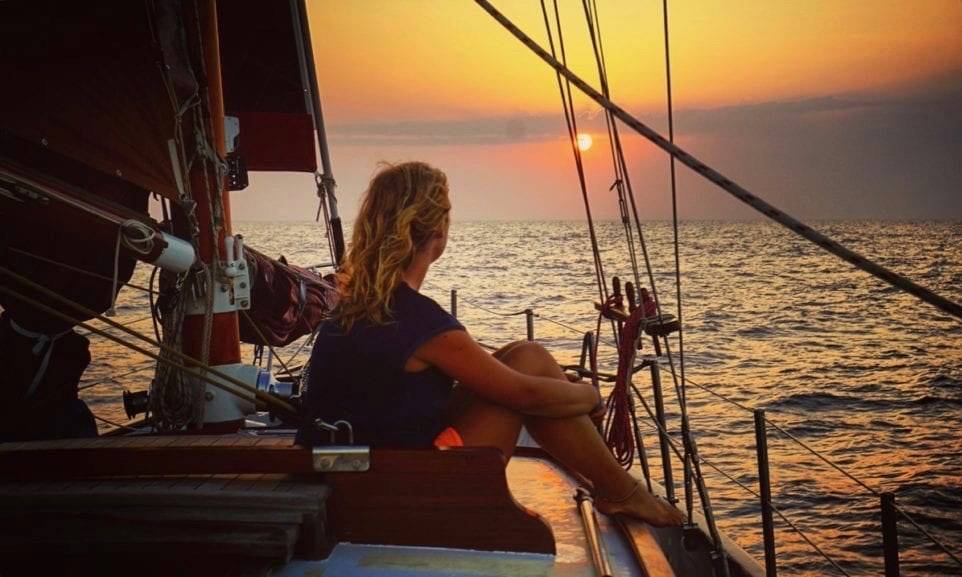






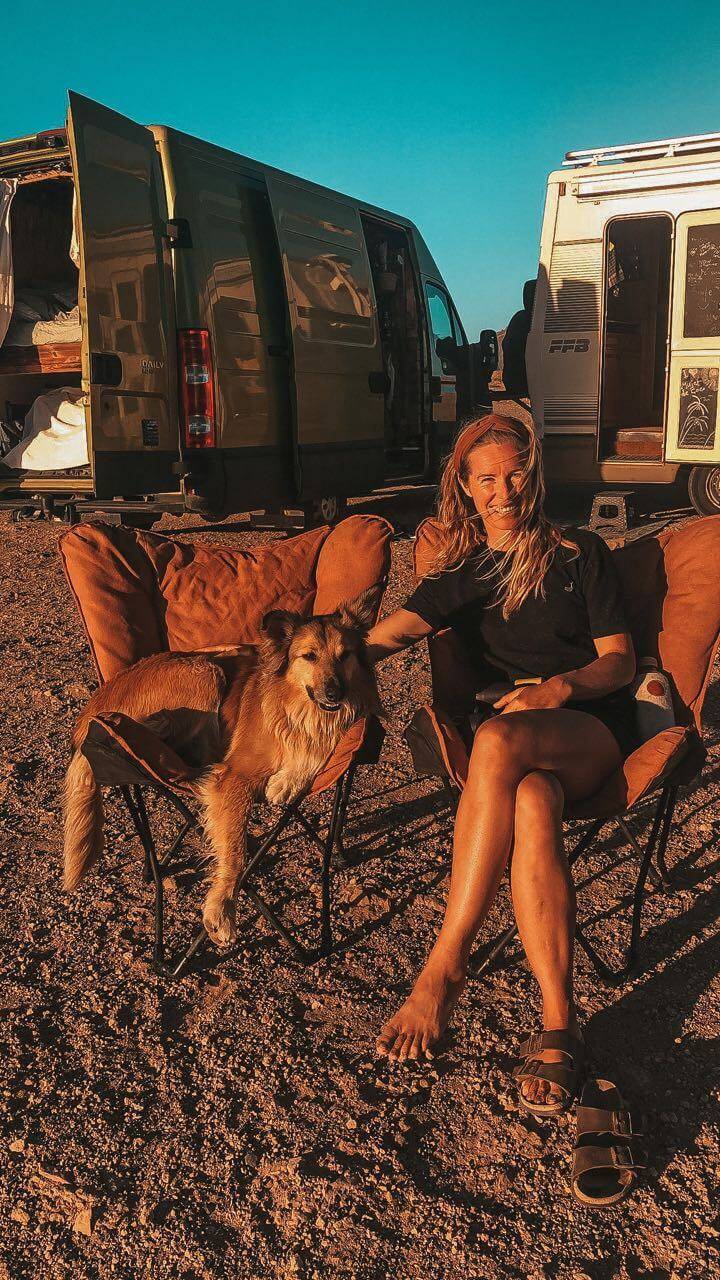
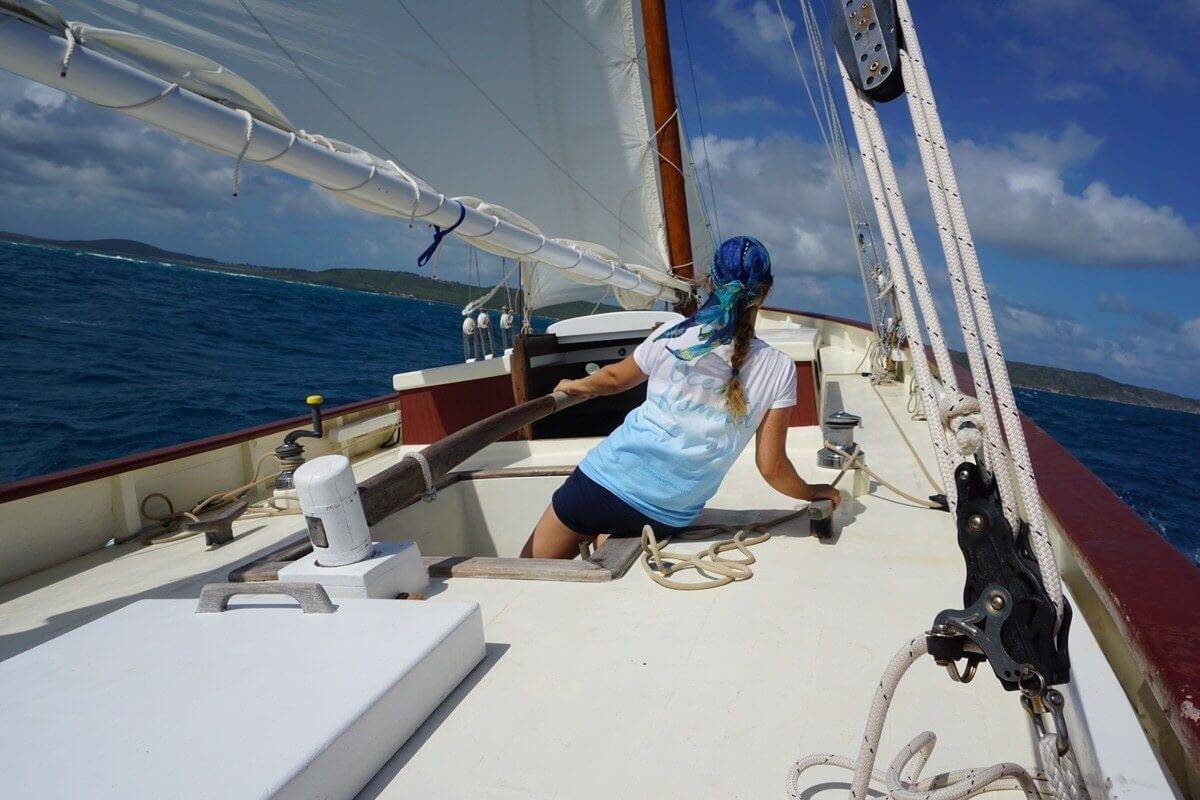





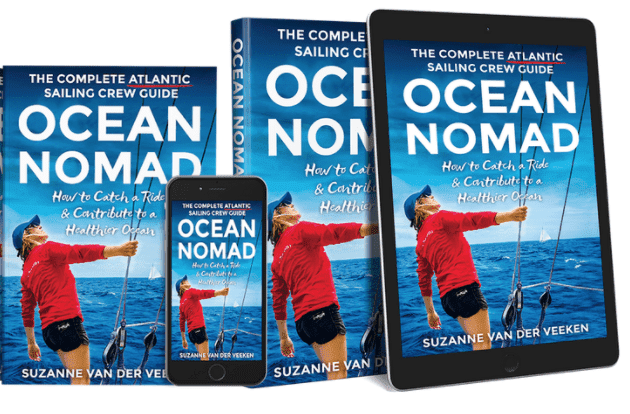

Very informative article!! Thanks for sharing with us.